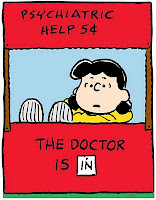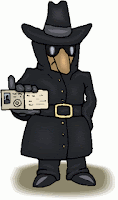No, you don't. … Well,
at least according to the statisticians we'll have at least 7 career
changes throughout our lives.
It can't be a realistic
figure. After all, I'm almost 30 and I've had just … 4 jobs. …
Hm, maybe it's not such an exaggerated number.
 |
| Image from: chs.rcsnc.org |
To see if I were the odd
one out, I asked my friends and colleagues how many jobs they had
throughout their lives and I must admit I was very surprised. Of
course, there were some who has had only 2 or 3 jobs (I didn't count
summer jobs.) but they were in minority.
A friend of mine, Beth,
worked as a dishwasher, bartender, cleaner at building sites, food
promoter in a supermarket, waitress in a confectionery, pet shop
assistant (or 'beast tamer' if you like), business manager in the
same pet shop (she is good at taming people too), data entry operator at an online company and then as a team leader at the same company.
It's … 9 jobs within 13 years. Not bad.
The absolute winner,
however, is another friend of mine: Maria. She is only 32 years old
and has had 11 jobs. Yes, 11. She sewed shoes, then manufactured
paper bags, then for a while she was a sales assistant in a shoe
shop, after which she worked in a dry cleaner's. In the meantime, she
taught music and English for children as a private tutor. Later on,
she worked in a nursery for a few months. Then, she was a … I'm not
quite sure what she did but something related to sales statistics.
All I know is that they had two inventories in a year. ;) Then, she
sang in a choir. (She's been singing in different choirs throughout
the years but I count only this one because she actually was paid for
it.) Then, she worked as an interpreter for a company offering
financial consultancy. But she wanted something more creative so she
decided to translate movies. (It's not that easy as it sounds. But
fun for sure.) And now she is a data operator. Yes, she is this
energetic and versatile.
So, the stats are quite
reliable. But let's see why one in three workers remain in a job for
less than two years.
Why do people quit their jobs?
Disillusionment – They
feel they could do much more. This is usually combined with the
appearance of new opportunities on the horizon.
Downsizing –
Unfortunately, sometimes the career change is not our choice.
Money – Like it or not,
you need it.
Stress – Sometimes
money cannot compensate the stress which comes with the job.
Poor relationship with your
boss – Nothing is more demotivating than a boss who cannot speak
only shout.
No appreciation – The
recognition of a job well-done is very important for us.
Relocation of the company
– Not everyone can or wants to move into a new city.
What to do if you are unhappy with your job?
- My mother's advice: 'Keep repeating it could be worse.'
Result:
 |
| Image from: protagonist.wikia.com |
- My advice: Learn new skills, prepare for a career change and look for a better, more rewarding job.
Result:
 |
| Image from: perkinscounseling.blogspot.co.uk |
How about you? How long
have you been working for your present employer? Why did you leave
your previous one?
























